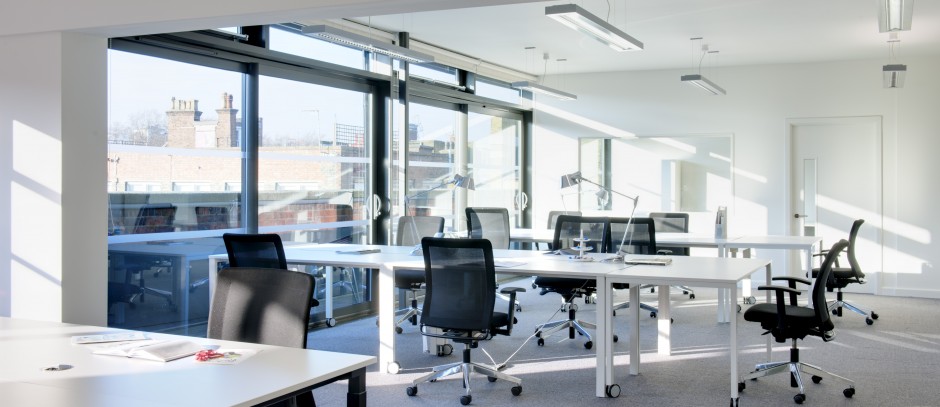High office rents are a major obstacle for startups trying to set up or expand their business in London. Permanent workspaces are supposed to be places of security and stability, but with economic uncertainty and new expenses, revealed in the Spring budget announcements , office spaces can become increasingly burdensome.
According to 2016 research, the average cost of an office in London’s King Cross area is £68 per sq ft, per annum. The average office size in the area is 13,000 sq ft, making the average rent a staggering £884,000 per year. Even an office that has 1,000 sq ft of floor space would cost around £68,000 a year, a cost that could cripple any young business.
For small businesses in particular, one of the most important announcements made by Philip Hammond involved the Business Rates Revaluation. As of April 2017, business rates are set to rise for many SMEs in London, stripping them of thousands of pounds each year that could be far better spent on business growth. In the face of such huge changes, what alternatives are open to startups and small businesses looking to save money on their office?
What money-saving alternatives are there?
Choose a virtual office for your business
Virtual offices are incredibly useful ways to cut the rents, bills, business rates and other costs associated with an expensive central London office, but maintain the prestigious address. There’s no question that certain address will offer an impression of a successful business.
You can use your city centre address to receive mail and phone calls too. In fact, i2 Office have their virtual offices in Canary Wharf, Kings Cross and Mayfair equipped with meeting rooms so that if you do need to work from an office space, you can do so without looking suspicious or unprofessional.
For small businesses and startups who can feasibly work from a home office, virtual offices can bridge the gap between home and work, saving on suffocating costs and giving off a professional image.
Think about where to save on location
London is undoubtedly a great place to do business, 82% of businesses in the capital rate it as ‘good’ or ‘very good’ when compared to other world cities. However, London isn’t the be all and end all for many startups, that could benefit from cheaper rents elsewhere.
The Start-up Cities Index 2015 listed the 25 best cities in the UK outside London to start a business. Edinburgh, Oxford, and Bristol are the top three cities that startups should consider instead of London—in all three rents are substantially cheaper.
Other places to make the list that are within close proximity to London include Milton Keynes and Brighton.This, coupled with a virtual office, could mean you save on the rent of a central London office but can still easily head into the capital for business when or if you need to.
Become more efficient with coworking spaces
Another option that may be ideal for startups and SMEs is coworking. A 2016 report by JLL titled ‘A New Era of Coworking’ found that although cost reduction was not a primary motivation for businesses that choose coworking spaces, the “more efficient utilisation of space helps companies to reduce costs without compromising on the quality of workspace.”
Coworking, which can involve leasing a space as small as a desk or substantially larger, is perfect for startups that don’t want to be burdened by an entire office that they don’t need or want. Coworking spaces often come fully equipped and only involve committing to a few months rather than years.



 Bitcoin
Bitcoin  Ethereum
Ethereum  Tether
Tether  XRP
XRP  USDC
USDC  Solana
Solana  Cardano
Cardano  TRON
TRON  Lido Staked Ether
Lido Staked Ether  Toncoin
Toncoin  Avalanche
Avalanche